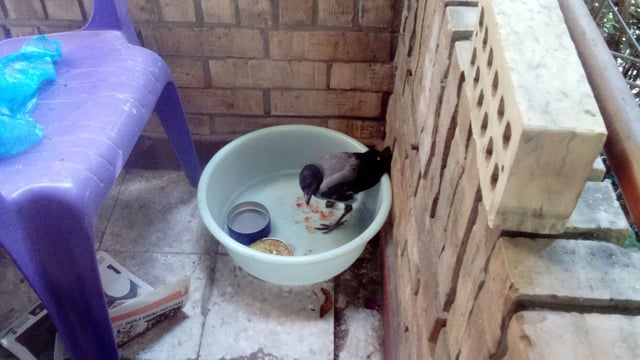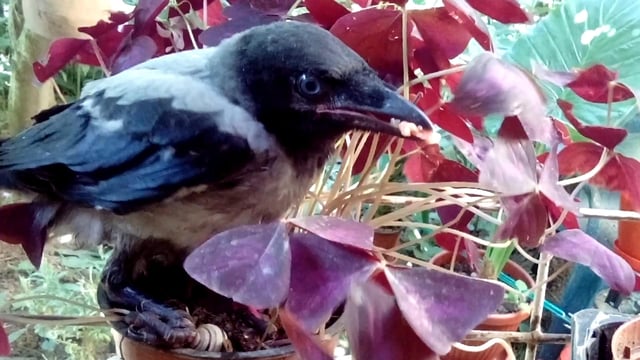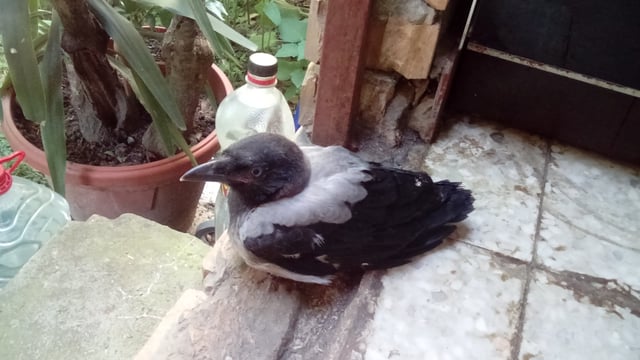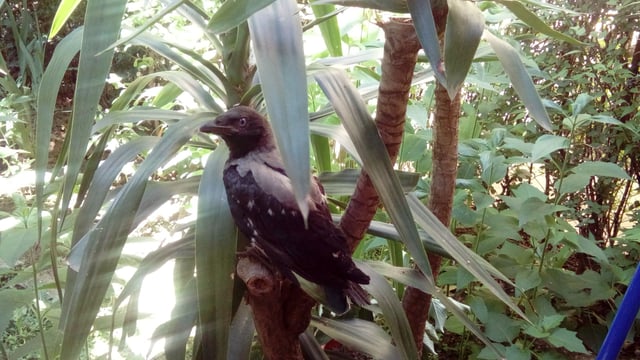I found this guy right under my window, huddled in a corner and bleeding a lot (for a crow) from his leg. You can see that the leg is sort of twisted backwards on these two pics, and you can see where he was bleeding.
Me and my family held him down and sprayed antiseptic on his wound and most of his leg, which he didn't mind too much. Over the next two days, he managed to stop bleeding and seemingly recover, becoming much more active and lively. The thing is, he can't fly. But he was constantly hopping on things to try to get outside of the garden (though he didn't fear us, he just wanted to get back to his parents, presumably).
The thing that I'm worried about is whether his family is going to accept him back if we send him out again. We sent him out already once, and a neighbour found him huddled in a corner just like the last time, so he brought him home (though the crows sounded angry at him as he was doing so).
My grandmother disregarded our plan and put him out again in the morning while we were asleep, and the cawing woke me up. What I really need to know quickly so I can make a proper decision (whether to try to bring him back into the garden, which is very much near the nest, or whether to let him take the chances out there) is whether his family is going to abandon him for not being able to fly and for having an injured leg. I am PRETTY SURE (I'm not absolutely 100% sure that it was him but I'm decently sure) I saw a crow feeding him directly with my binoculars. However, I also saw that another fledgling that looked similar was flying.
The question is, if he can't fly and if he has a limp in one leg, will he survive? Will his family teach him how to fly, or will they abandon him for not knowing how to fly yet? The area where we live has a lot of stray cats, so that's the big problem.
Thanks, I hope someone can help me figure out the best decision. The reason we wanted to keep him in the garden a bit more is to feed him and wait until he can learn to fly in a safe environment that cats are more unlikely to enter.



